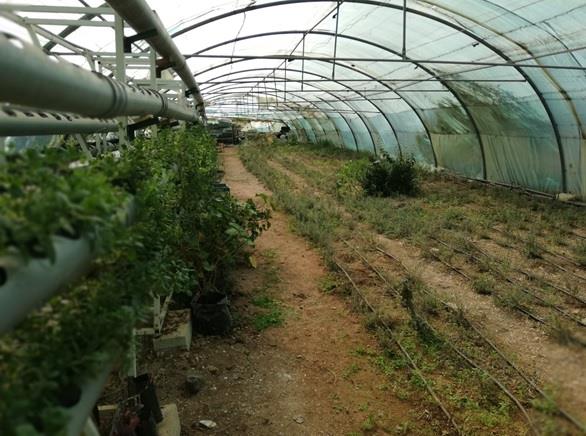Strengthening the capacities of Arab countries in carrying out regular Census of Agriculture

©FAO/ national agricultural censuses are a comprehensive source of statistical information that can support governments and development partners in policy formulation in issues such as land use, food production, agricultural productivity, and agri-busine
3 April 2019, Amman - The Food and Agriculture Organization (FAO), the Arab Institute for Training and Research in Statistics (AITRS) and the Arab Organization for Agriculture Development (AOAD) organized a workshop to strengthen the capacities of national authorities in carrying out agriculture censuses.
National agricultural censuses are crucial for governments to implement evidence-based policies to foster agricultural and rural development, ensure access to land, improve food security and reduce the adverse environmental impacts of farming activities. Census data are also essential for the private sector to make informed decisions that guide their investments in agri-business activities.
"The past 2006-2015 census years marked a new record in the number of countries which have conducted agricultural censuses worldwide, 128 in total. FAO technically assisted many of these countries, and will continue to support its members in the organization of their censuses of agriculture in line with the new guidelines," said Jay Castano, FAO Agricultural Censuses team leader.
Usually done every ten years, national agricultural censuses are a comprehensive source of statistical information that can support governments and development partners in policy formulation in issues such as land use, food production, agricultural productivity, and agri-business development.
The information collected provides an accurate picture of the agricultural sector and a reliable sampling frame for current agricultural surveys. In particular, the censuses entail a complete account of the structure of the agricultural sector, including the number and size of holdings, land use, crop area, crop intensity, irrigation facilities, agricultural input use, livestock numbers, as well as farmer demographics and employment.
Through agriculture censuses, we understand why farmers make certain decisions, and also the comparative advantage of specific crops or livestock for markets. We are also able to comprehend how land is used and how agriculture productivity is progressing. Essential information about the environmental impacts of agriculture and climate change are also made available. The Agriculture census also allows us to monitor some of the SDG objectives.
Sally Berman, Partnerships Officer, FAO Jordan reiterated the importance of the workshop and carrying out regular and accurate agricultural census in all Arab countries. She says, "The Agricultural census is a critical tool to plan, programme and prioritize country interventions to help farmers, consumers and the environment."
The Regional workshop held on 1- 4 April 2019 in Jordan, brought together 22 countries from the Near East and North African region and as well as some countries from Eastern Africa. In this region, Jordan and Egypt have been champion in carrying out high quality and regular Agriculture census, every ten years.
FAO has been supporting countries on their Censuses since 1948. The workshop is to help countries gain a deeper understanding of the steps, methods and tools to carry out an agricultural census. At the workshop, the new "Operational Guidelines" will be used to harmonize census results worldwide and make them internationally comparable. Today the agricultural census is the most complete and important source of information on agriculture for a country.
